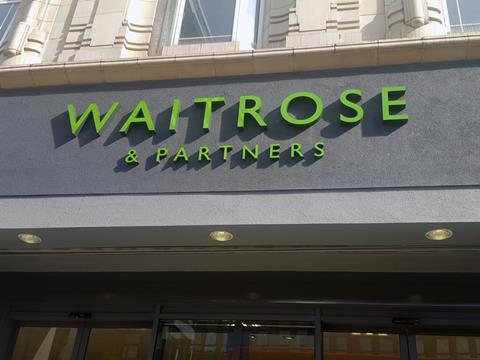
Top story
John Lewis Partnership has plunged to a £92m first half loss amid falling Waitrose sales and a wider slowdown of consumer spending.
For the six months to 30 July, the group made a first half loss of £99m, or £92m before exceptional costs, largely due to the combination of cost inflation not fully passed on to customers, the impact of cost of living crisis, unwinding of Covid shopping patterns and investments to support the business.
The compares to a profit of £69m in the same period last year, which was boosted by government Covid aid including £58m from the business rate holiday.
Waitrose sales fell 5% on a like-for-like basis back to £3.6bn, albeit up 7% on a like-for-like basis on pre-Covid levels.
JLP said that Waitrose had benefited from bigger baskets during the pandemic as customers were restricted by the pandemic, dining out less and doing fewer shops. Customer numbers have held up, transactions were up 14% year-on-year, but basket sizes are smaller by nearly a fifth.
Waitrose Trading operating profit fell by £93m to £432m due to a combination of volume decline and inflationary pressures being partially offset by a more favourable profit mix and cost savings.
John Lewis sales were up 3% like-for-like to £2.1bn, driven by a return to shops. Fashion has been the best performing category, growing 25% compared to last year with strong performance in holiday wear, as people returned to travel and summer breaks. Conversely, our home and technology categories, which performed strongly during the pandemic, declined year-on-year.
John Lewis Trading operating profit has been maintained at £295m compared to last year.
Overall profits were also hit by booking a £20m of store impairment relating to higher discount rates in both grocery and general merchandise, and sales prospects in a handful of Waitrose shops the group said post-pandemic trade will recover to previous levels.
It also continues to invest strongly in the Partnership Plan, incurring £12m higher operating cost this year related to the costs of change across the business.
Chairman Dame Sharon White said the outlook for the second half remains “uniquely uncertain”.
“We believe we are well placed to navigate the current inflationary headwinds. First, we have a strong balance sheet, which helps us navigate through trading volatility… Second, the loyalty of our customers and a deep understanding of their changing habits and needs. Third, the dedication of our Partners who provide great service for our customers.”
However, she said the group would need a “substantial strengthening of performance, beyond what we usually achieve in the second half” to pay a partnership bonus this year.
“A successful Christmas is key for the business given the first half… Much will depend on the wider economic outlook and consumer sentiment,” she said.
“Time and again we have been tested as a Group. We have always come through - and stronger - by being mindful of the challenges but also open to new opportunities. We will do so again.”
Morning update
Hilton Food Group grew sales and profits in the first half as its broadened geographic and category portfolio, however it warned its second half will be below expectations due to economic headwinds.
Overall revenue were 20.4% to £2.0bn, driven by acquisitions, volume growth and raw material price inflation.
Volumes were 3.6% higher, including the new acquisitions Foppen, Dalco and Fairfax Meadow as well as the new facility in New Zealand.
Operating margin fell back to 2.0% from 2.3%, impacted by the raw material price inflation although the operating margin per kg increased to 15.2p per kg from 14.9p per kg.
In Europe volumes were 1.7% higher including continued fresh food growth, expansion into new geographies and new customer partnerships in channels. Revenue increased by 14.7% on a constant currency basis mainly due to raw material price inflation. Operating margins fell to 2.6% (2021: 3.3%) with its Seafood business significantly impacted by effects of the Ukraine conflict and wider inflationary pressures as well as a short-term investment in price.
APAC volumes during the period increased by 7.9% reflecting the New Zealand start-up which continues to ramp up its operations. Revenues were 30.1% higher on a constant currency basis reflecting raw material inflation in addition to the higher volumes, with operating margins at 1.6%.
Overall operating profit for the first 28 weeks of 2022 was £41.2m, 5.6% higher than in the previous year and 7.3% higher on a constant currency basis including contributions from the new acquisitions.
EBITDA increased to £66.6m from £63.9m reflecting higher operating profit and depreciation.
While Hilton said it continues to benefit from the strength of its diversified business model and continue to grow volumes internationally, it has “not been immune from the impact of macroeconomic headwinds”.
“Across our markets, we have seen volumes come under pressure with the cost of living increasing and consumers becoming ever more cost-conscious. In our Seafood business these trends have been exacerbated with world events leading to unprecedented raw material price increases,” it stated.
Given these factors, and combined with the impact of start-up costs and rising interest rates, the board now anticipates that profitability for the year will be below expectations.
However despite these short-term challenges it continues to explore opportunities for both geographic expansion and growth in our existing markets across the five pillars of our proposition.
CEO Philip Heffer commented: “At a time when inflationary headwinds have become more pronounced, we have made further progress in broadening and deepening our protein offer, while expanding our footprint across international markets. At the same time, we have made ongoing investment to ensure we lead in technology and automation, with sustainability central to everything we do.
“In the current macroeconomic environment, Hilton has not been immune from the impact of heightened inflation. While we remain watchful of any near-term changes in consumer sentiment, we believe that our international scale, strong customer relationships, and diversified protein offer leaves us well-placed within a growing global market.”
Online retail group THG grew revenues strongly in the first half, but profits were hit by absorbing some inflationary price increases.
Group revenues in the first six months of 2022 increased 12.3% to £1.08bn and by 11.9% on a constant currency basis.
THG Beauty delivered the strongest growth at 20% year-on-year to £553m, representing 51% of group sales and boosted by acquisitions of Cult Beauty and Bentley Labs.
THG Nutrition sales grew a more modest 1.1% year on year to £332m, with challenging commodity prices and FX providing headwinds, as well as a particularly strong comparative period due to online retail benefitting from the closure of physical retail stores last year.
THG Ingenuity revenues grew 21.4% year-on year to £104m in the first half, with the Ingenuity commerce division growing 25.1%. Commerce revenues of £22.9m included recurring revenues of 76% - up from 55% last year.
Gross profit increased to £443m from £437m, with margin down to 41.1% from 45.6%, impacted by the many well-documented macro-economic.
Margin was hit by elevated commodity pricing (both commodity whey pricing, and other indirect raw ingredients), foreign exchange headwinds (principally Japanese Yen) and wider inflation following on from Covid-19 impact and subsequently the war in Ukraine.
As management considers the majority of these headwinds to be transitional in nature, the group has invested in margin, primarily in consumer price protection to protect the customer as much as possible.
Adjusted EBITDA fell to £32m from £81m, reflective of the challenging environment and its strategy to protect consumers from these inflationary pressures, together FX movement and administrative cost inflation across payroll and marketing.
Despite the cost of rising interest rates and energy placing pressure on consumers, the Group anticipates a strong second half with another period of double-digit growth.
With inflation easing in core areas such as commodities, the majority of margin benefits will be realised in the fourth quarter due to forward buying plans.
Therefore it now expects full year 2022 adjusted EBITDA between a range of £100m to £130m on revenue growth of between 10% and 15%.
CEO Matthew Moulding commented: “”I’m proud to report the Group achieved record H1 revenues of £1.1bn, delivering 12.3% growth against a challenging global backdrop, alongside a strong prior year performance during lockdown.
“Against the tough macro-economic backdrop, we have prioritised our loyal customer base, over maximising near term gross margins focusing on retention and growth of consumers. The strength, resilience and agility of our vertically-integrated business model, coupled with automation, has enabled us to significantly invest in price protection for consumers currently facing unprecedented cost-of-living challenges.
“Supporting our consumers through 2022 has been offset through reducing 2023 capex, with the Board viewing this investment as yielding a better return for shareholders and consumers alike in the near term.
“With a strong balance sheet and category leading positions within substantial end markets that continue to benefit from long-term structural growth, we have confidence in our ability to deliver long-term value for shareholders and remain on track to be cashflow positive in 2024.”
Also this morning, the group has announced the appointments of Gillian Kent and Dean Moore as independent non-executive directors with immidate effect.
Kent has had a far-reaching career in software, internet, digital media and mobile technology businesses and formerly held various senior roles at Microsoft, including MD of MSN UK and CEO of the real estate portal Propertyfinder.
Moore was previously CFO at Cineworld Group, N Brown Group, T&S Stores and Graham Group.
Additionally, existing non-execs Zillah Byng-Thorne and Andreas Hansson are stepping down from the board.
Finally this morning, consumer products group Supreme has issued a trading statement ahead of its AGM.
It said trading for the current financial year remains in line with market expectations, with the business well-placed to deliver on our strategic aspirations, supported by the recent acquisitions of vaping business Liberty Flights and the trade and assets of Cuts Ice and Flavour Core.
The rest of the group continues to perform in line with expectation and the overhead base continues to be tightly managed.
Looking ahead, it continues to explore additional M&A opportunities to complement the group’s organic growth, and the board remains “confident in Supreme’s strategic ambitions, underpinned by the exciting prospects within vaping”.
On the markets this morning, the FTSE 100 has rebounded 0.6% to 7,320.2pts.
Risers include Nichols, up 2.8% to 1,110p, Tate & Lyle, up 2.6% to 714.6p and Sainsbury’s, up 1.7% to 206.3p.
Fallers include Hilton Food Group, down 30.1% to 657.9p, THG, down 18.6% to 39.8p and Naked Wines, down 3.8% to 87p.
Yesterday in the City
The FTSE 100 closed down 1.5% yesterday at 7,277.3pts for its second consecutive significant fall.
Naked Wines shares plunged 37.7% back to 90.4p yesterday after the DTC wine seller hinted at a change of strategy to deal with falling consumer demand and rising costs.
In an unscheduled business update, the group said it was reviewing potential operational and financial plans for the next 18 months and would give more details alongside a first-half trading update in October.
Other fallers included Ocado, down another 8.2% to 623.2p after Tuesday’s gloomy trading update.
Also down were C&C Group, down 8.1% to 159.8p, Virgin Wines, down 7.8% to 47.5p, Coca-Cola Europacific Partners, down 4.6% to €47.50, THG, down 4.3% to 49p, Sainsbury’s, down 3.4% to 202.9p and Tesco, down 3.3% to 237.3p.
The day’s risers included Deliveroo, up 2.6% to 94p, Hotel Chocolat, up 1.8% to 142p, Finsbury Food Group, up 1.7% to 78.5p, Haleon, up 1.4% to 270.3p and WH Smith, up 0.7% to 1,456.5p.







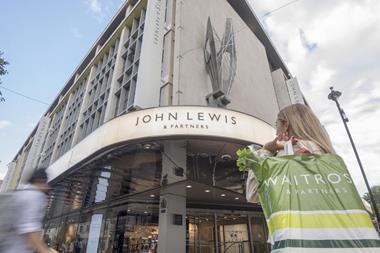
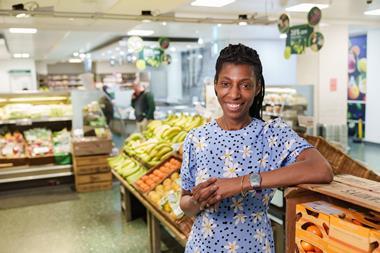
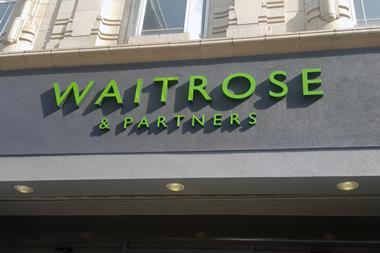
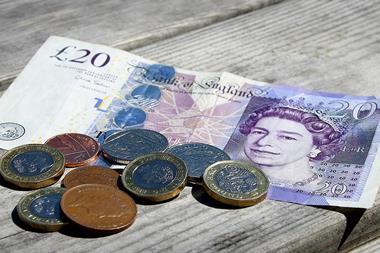
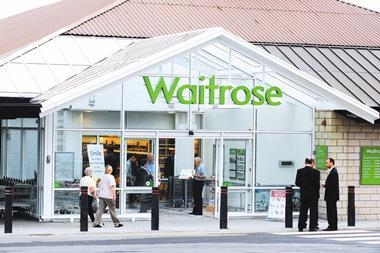
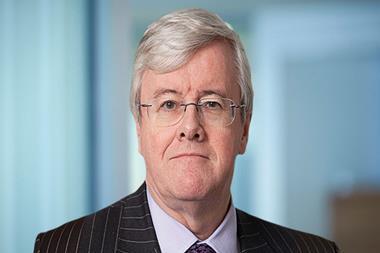






No comments yet